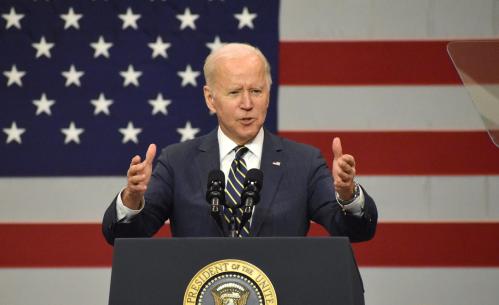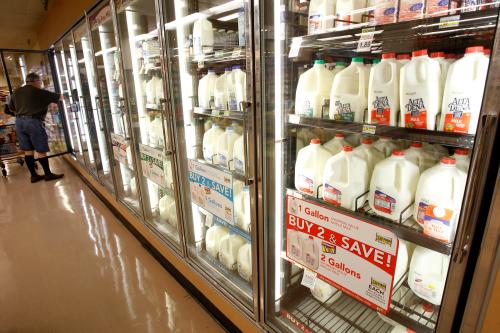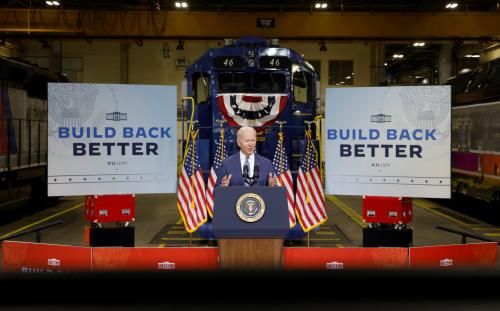The unpredicted and unwelcome return of rapid price increases has reshaped the political landscape with stark consequences for the Biden agenda. The American people now believe that inflation is the most important issue facing the economy and the country, and they don’t think that President Biden is paying attention to it. This explains why so many Americans disapprove of his economic performance—and why it is undermining his presidency.
Most Americans are too young to remember the inflationary surge of the 1970s and early 1980, which is why the return of inflation has come as such a shock. Many economists were caught flat-footed as well. They argued for a year after prices began rising that this phase of the economic recovery would be “transitory”—until last week’s announcement that the annual rate of inflation had reached 7.5%. The news administered the coup de grace to this unfortunate adjective and vindicated the views of dissenting economists such as Larry Summers and Jason Furman that inflation was likely to be persistent. The Biden administration remained publicly hopeful about inflation until developments in recent months made its optimism untenable.
In a recent CBS/YouGov survey, 58% of Americans said that Biden wasn’t focusing enough on the economy and even more—65%—said this about inflation. Only 33% say that Biden and the Democrats are focusing on issues they care about the most. According to a CNN poll, 7 in 10 Americans think the government isn’t doing enough to reduce inflation and relieve disruptions in the supply-chain. Against this backdrop, it’s not surprising that just 38% approve of the president’s handling of the economy and even fewer—30%— his handling of inflation .
A recent Economist/YouGov survey shows that inflation has become the dominant factor determining the voters’ view of the economy. Asked to identify the “best measure” of how the economy is doing, 52% pointed to the cost of goods and services, compared to 17% for unemployment and jobs and just 6% for the stock market. Although the Biden administration wants Americans to focus on rapid job creation and the sharp decline in unemployment, it seems that the people are more likely to emphasize rising prices until the pace of inflation abates.
Since the New Deal, Americans have come to believe that presidents exercise considerable control over the economy, and they expect President Biden to do something about inflation. Shortages of goods on grocery store shelves and delays receiving goods ordered online have convinced the people that unclogging the supply chain is an important part of the solution. But despite the administration’s claims, they haven’t seen much progress on this front. The contrast between the high visibility of the pandemic task force and the virtual disappearance of supply chain task force has been dramatic, especially because the people now care more about rising prices than falling infection rates.
In the absence of a high-profile anti-inflation effort, the people are reaching their own conclusions about the administration’s agenda. According to a Politico/Harvard survey, 46% believe that enacting the Build Back Better (BBB) proposal would increase the rate of inflation; just 6% think that it would decrease inflation. Attitudes about the bipartisan infrastructure bill, which President Biden has already signed into law, are very similar.
The people believe that there is a connection between spending and inflation, and the administrations’ argument that its legislative agenda is anti-inflationary has fallen flat. This said, only 33% of Americans support cuts to either domestic programs or the defense budget. Even fewer back raising interest rates, increasing immigration to expand the workforce, or imposing wage and price controls. The public does back increased support for childcare to help parents reenter the workforce, however, along with a crackdown on anti-competitive behavior by large corporations. Other items in the BBB bill, such as lowering the price of prescription drugs, also enjoy public support as anti-inflationary measures.
All presidents face unexpected disruptions to their plans. For Biden, inflation is it. How he handles this challenge to economic stability and household incomes will shape his party’s prospects in 2022—and the next presidential election.
The Brookings Institution is committed to quality, independence, and impact.
We are supported by a diverse array of funders. In line with our values and policies, each Brookings publication represents the sole views of its author(s).








Commentary
Why inflation is President Biden’s biggest political problem
February 17, 2022